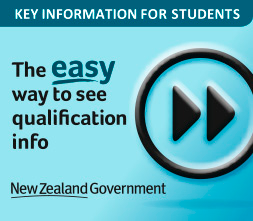Programme overview
Please note: Entry into this programme requires you to have a confirmed zoo placement. If you are interested in a placement with Auckland Zoo, we will arrange this as part of your application. If you are interested in applying for a placement with another facility within New Zealand, please ensure you arrange this with them before applying for this programme.
- How to maintain the safety and welfare of yourself and animals in a wild animal in human care environment, including feeding, safety and hygiene practices, housing and containment of animals, natural behaviours, enrichment, and life histories
- How to recognise and respond to health issues and emergencies involving wild animals within a zoo environment.
- The role of zoos and other wild animal facilities. You’ll delve into the history of these facilities and how they’ve changed over the years and explore zoos’ local and global impact on conservation.
Highlights
- Only zookeeper qualification in NZ. All main zoos in Aotearoa, New Zealand, recognise this programme as the entry-level qualification to work as a zookeeper in this industry.
- A mixture of on and off-campus learning. You’ll be required to attend three compulsory block courses (5-6 days) at our Mt Albert campus, where you’ll gain applied knowledge and skills to help you through your work experience. It’s also a chance to meet students from other zoos nationwide and attend field trips to the Auckland Zoo.
- Lots of work experience. You’ll complete 280 hours at an approved zoological facility where you can apply the knowledge and skills you’ve learned to the practical management of a wide range of species.
Blended learning
This study option is full-time (off-campus and online), and you'll be required to attend three compulsory block courses at our Mt Albert campus.
To study from a distance, you must be self-motivated, committed, and have excellent time management skills. You must attend all block courses, exams, practical assessments, and work experience and complete your self-directed study (research, reading, and revision) and assessment writing.
You'll also need consistent access to a computer with a reliable internet connection and appropriate office software, e.g., Microsoft Office, which we'll provide once you‘re enrolled.
Finding the right work placement
- At least 40 hours must be with invertebrates, fish, amphibians or reptiles
- At least 40 hours must be with birds
- At least 80 hours must be with mammals, with a minimum of 16 hours with at least one dangerous animal
Interested in working at Auckland Zoo?
Unitec arranges Auckland Zoo placements as part of your application. If you plan on applying for a placement at Auckland Zoo, follow the instructions below (please don’t contact them directly).
Where to next?
If you’re interested in continuing your studies, this programme will give you the academic admission requirements for the Bachelor of Applied Science majoring in Animal Management and Welfare or Biodiversity Management.
Work placement at zoos
Auckland Zoo
-
Application deadline: 1 October
- Minimum age requirement: 18 years
- You must include:
- An up-to-date, relevant CV
- A letter (max 300 words) answering:
- How do you view the role of zoos in today’s society, particularly in New Zealand?
- What involvement have you had with animals or environmental/conservation activities (e.g., pets, volunteering, study, organisations)?
- What do you hope to gain from this certificate and why?
Other Approved Facilities
Auckland
Wellington
Email: experience@wellingtonzoo.com
Phone: +64 4 381 675
Christchurch
Email: catherine.roughton@oranawildlifepark.co.nz
Phone: +64 3 359 7109 ext 810
Willowbank Wildlife Reserve* - Contact: Shaun Horan
Email: shaun@willowbank.co.nz
Phone: +64 3 359 6226
Hamilton
Nelson
Email: alix@natureland.nz
New Plymouth
Email: brooklandszoo@npdc.govt.nz
Phone: +64 6 759 6060
Admission requirements
What you will need to study this programme.
Domestic students
You must have completed the following:
40 credits at NCEA Level 1, including 10 Literacy credits and 10 Numeracy credits; or a recognised equivalent;
- a relevant qualification at NZQF Level 2 or above; OR
- a recognised equivalent
And meet one of the English entry requirements;
- Evidence of English language proficiency as outlined in the NZQA Rules on the Unitec English Language Requirements for International Students Web-page.
Additional requirements
Non-academic requirements
Fill in the following forms:
Don’t meet these Academic requirements?
- If you don’t meet the academic criteria, our Bridging Education Programmes can help you qualify. Simply apply online, and we’ll discuss your next steps.
- If you don’t meet the above criteria, special or discretionary admission may apply; your eligibility will be determined at the interview.
Note on referees: One referee needs to be an employer where you have worked with the public and one from a teacher (or similar), who can talk about your character.
For more information, download the programme regulations (PDF 280 KB)
Courses and timetables
For more details on the courses including timetables, please click on the course names below.
Debug
| Courses | Credits | Aim |
|---|---|---|
| Anatomy and Physiology (ANML4002TP) | 15.0 credits (0.125 EFTS) | The aim of this course is to develop the knowledge, skills and competencies relevant to the anatomy and physiology of animal health and welfare |
| Biodiversity and Conservation (ANML4902TP) | 15.0 credits (0.125 EFTS) | The aim of this course is to develop the knowledge, skills and competencies relevant to biodiversity management and conservation within a zoo industry context. |
| Zoo Animal Husbandry (ANML4903TP) | 15.0 credits (0.125 EFTS) | The aim of this course is to develop the knowledge, skills, and competencies relevant to animal management, transportation, and housing to ensure optimum outcomes for animals, staff and visitors. |
| Zoo Animal Welfare and Behaviour (ANML4904TP) | 15.0 credits (0.125 EFTS) | The aim of this course is to develop the knowledge, skills and competencies relevant to the welfare and behaviour of zoo animals. |
| The Zookeeping Profession(ANML4905TP) | 15.0 credits (0.125 EFTS) | The aim of this course is to develop the knowledge, skills and competencies relevant to the operational requirements of zoos and the education of zoo visitors. |
| Introduction to Professional Skills and Competencies (ANML4906TP) | 15.0 credits (0.125 EFTS) | The aim of this course is to develop the knowledge, skills and competencies to manage personal wellbeing and professional development in the workplace. |
| Zookeeping Industry Practicum(ANML4907TP) | 30.0 credits (0.250 EFTS) | The aim of this course is to develop the knowledge, skills, and competencies to work professionally in a safe and sustainable manner, whilst providing optimal day-to-day care to animals in a zoo facility. |


